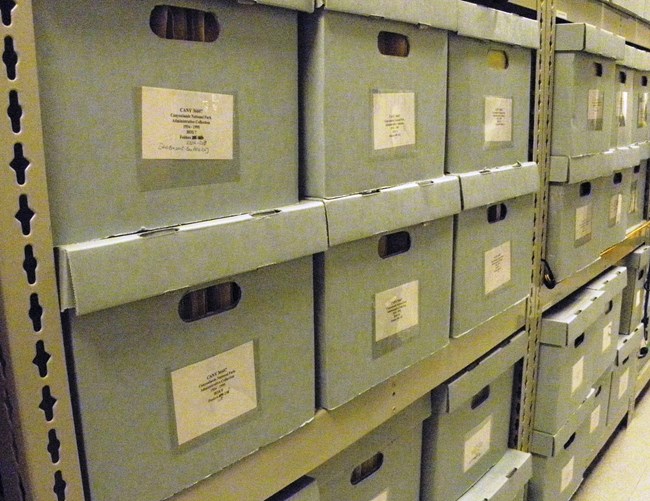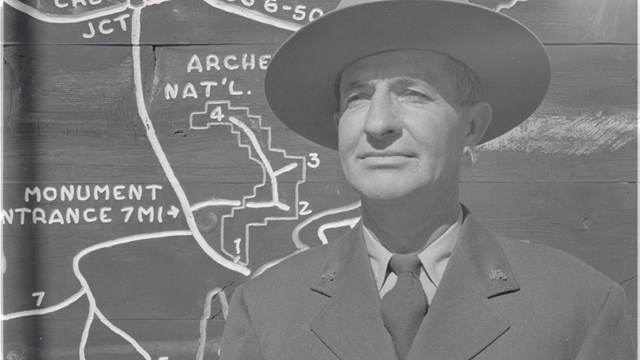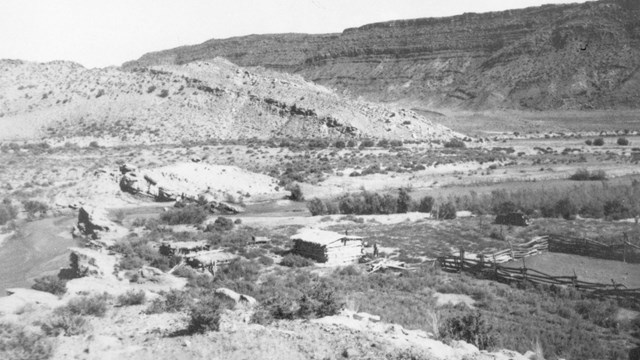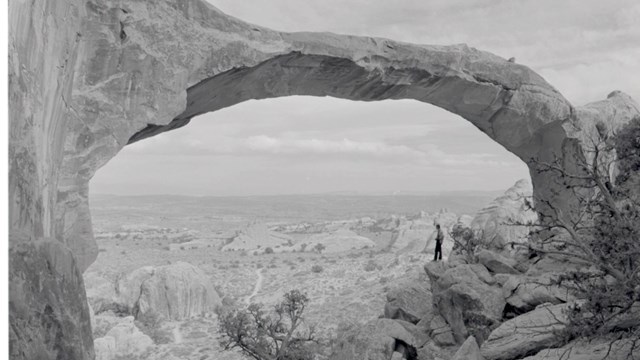
What is an archive?An archive is a collection of documents, records, and other materials that are created or received by an organization, family, or person. The National Park Service archives collects and preserves records vital to the function and mission of the NPS and they are permanent records preserved for the life of the organization. These records are valuable to the government for legal and fiscal purposes and serve as evidence of past work. The archives continue to inform park managers about how each parks’ resources have been cared for in the past and how best to continue that mission into the future. The Arches National Park archives preserves information pertaining to archeology, geology, history, wildlife habitat, plant life, hydrology, and more as part of the NPS mission. NPS also accepts collections donated by organizations, persons, and families directly related to the history of the parks. Who can use the Arches National Park archives?Anyone interested in using the park archives can request to use the collections by appointment only. Also, we lack the physical archives space to accommodate more than one researcher at a time for the four parks we manage. If you are interested in using the archives, you will need to fill out a research request, [122k PDF], read and sign the Guidelines for Use policy [122k PDF], and return the forms to the archivist. You may use the finding aids below to determine if we have information you are interested in viewing. We have more finding aids that are not web-ready, therefore it is best to e-mail the archivist if you do not find what you are looking for--we may be able to send you a finding aid in pdf format. To request scans of documents or photographs, please read the Interim Duplication Services [171k PDF] guidelines and fill out and return the form. Have questions? You may e-mail the archivist. What are finding aids?Finding aids are guides to finding information in an archival collection. They are similar to a card catalog in a library or an index in a book, but finding aids can be quite a mystery to even an experienced scholar. Most researchers should read secondary sources and other background material before looking for primary sources and evidence in an archive. It is important to know what you need and what type of material may have the information you are seeking before requesting material. Contact the archivist, who will conduct a reference interview, which is a conversation to determine your information needs and purpose, to guide you to appropriate tools, and to help you identify relevant holdings and resources. Be sure to discuss your research questions and the archivist may be able to tell you exactly where to find the evidence you seek. Contact the archivist. |
Last updated: September 25, 2021



